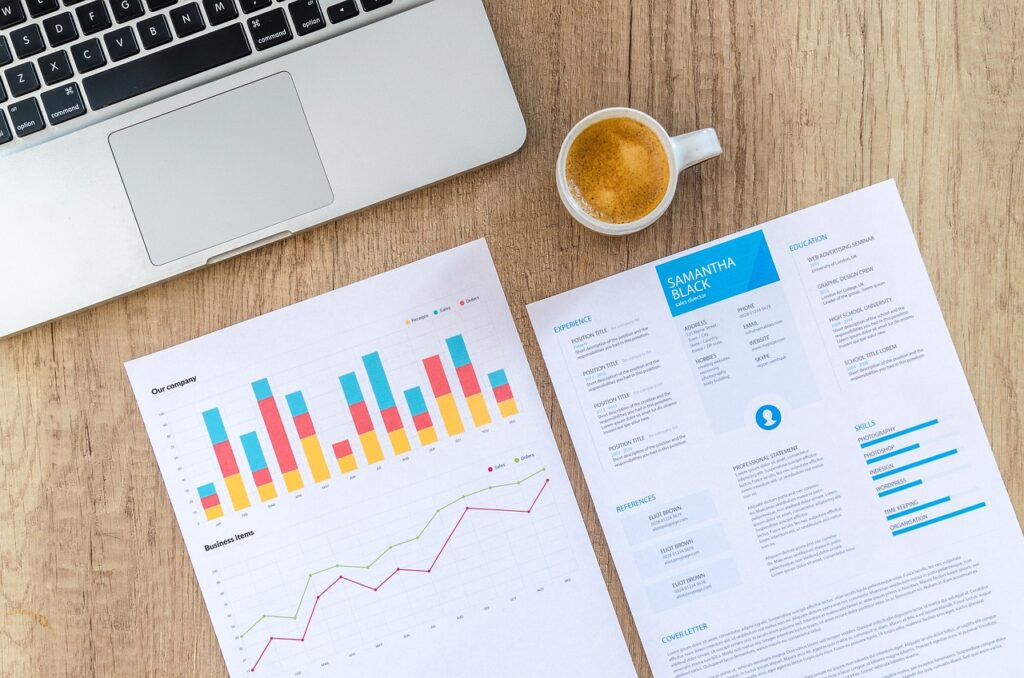Budgeting is somewhat of a buzzword in the personal finance space. We all feel like we should be or could be doing better at budgeting. But what is budgeting, actually? And how do you find the budget that is right for you?
Budgeting is somewhat of a buzzword in the personal finance space. We all feel like we should be or could be doing better at budgeting. But what is budgeting, actually? And how do you find the budget that is right for you?
College can be a tricky time for students, not to mention the struggle of managing finances through the whole thing. In this blog, we will talk about budgeting, what it is, and several different ways you can go about creating your own personalized budget.
With this personalized budget and a commitment to follow it, you can be confident and sure about the way you manage your money!
What is budgeting?
Budgeting is the process of applying organizational skills and tactics to one’s finances in order to better allocate funds for specific purposes.
Budgeting is neither for the incredibly organized individual nor for the financially irresponsible; rather, it is for everyone to make better sense of their finances. In many ways, having a budget is all about giving people “peace of mind”.
It makes life much simpler when you can look at your funds and know exactly where everything is meant to go.
Why is budgeting important?
Budgeting is essential to personal financial success as it allows us to better understand our current situation as well as paint a picture of what our future may look like. Budgets are also important for helping us follow basic correctional actions in our spending.
People with budgets are more capable of cutting down on excessive and unnecessary spending, as we already know exactly where our money is meant to be spent. We are also more capable of saving for the future, as a budget should clearly outline a certain percentage of one’s earnings as “savings”.
Should I budget?
Yes, you should be budgeting. Budgets are for people of all types and all personalities. Budgeting doesn’t just have to be for people whose spending has gotten the better of them; everyone can benefit from full accountability for their finances.
Even (( more like especially) the world’s largest corporations operate their finances in accordance with a budget. Do what makes sense: start a budget.

What does the research say?
According to research conducted by The Common Cents Lab, a behavioral science-based research program from Duke University, there is no inherent difference between the spending of people who use budgets and those who do not.
Instead, it was found that other factors such as creating short-term goals, pre-committing to good financial health, aligning your paycheck to your bills, and using “rules of thumb” made the biggest differences in personal finances and savings. Check out the research here.
Does this mean budgeting is useless?
Definitely not. Upon reading this study, you should realize that the problem lies not in the numbers but in the actions and temptations of the people.
That is why taking actions, such as automating your finances, can make such a huge difference. You have the ability to eliminate the possibility of giving into your own vices.
Holding yourself accountable.
This is really what is important when it comes to finances. Everybody wants to save and invest until they see something that catches their eye or they get a little hungry and Sonic is right around the corner.
Holding yourself accountable and finding ways to make this easier on yourself are what will really make a big difference in your finances. Budgets are a great way to go about this, but even the most organized budget can’t fix a compulsive spender who refuses to change.
How do I budget?
There are quite a few different ways to go about budgeting, and there are probably a million different budget planners out there. I will list a few popular forms of budgeting and link you to the most useful and relevant articles that are available.
-50/30/20 Budget.
You may have seen articles about this form of budgeting before. That’s because this form of budgeting is actually really popular and works for a lot of people. Here’s the idea: 50% of your after-tax money goes to needs, 30% of your after-tax money goes to wants, and 20% of your after-tax money goes to savings.
This budget is great for prioritizing the present while still helping you save for the future and emergencies. The nice round numbers make this budget simple to understand. And a budget that is easy to understand is a much easier budget to follow. If you have never managed a budget before, this would be a great way to start. Check out this article by NerdWallet that is full of helpful tools and links about this budget.
Zero-Based Budget.
A zero-based budget is a very simple way to go about organizing your budget. It is the process of allocating every dollar you have to a specific purpose.
This process starts with putting money toward the essentials. (ex: mortgage, food, car bill, utilities, etc.) Then you should focus on savings and funds. (ex: wedding fund, retirement fund, your kids’ college, etc.) At last, you start focusing on less important things. (TV subscriptions, date nights, concert tickets, etc.)
By the end of the planning process, you should be able to account for where each individual dollar belongs. Check out this in-depth guide by Ramsey Solutions about exactly how to create your zero-based budget by clicking here.
The Envelope Method
This method is both simple and old-fashioned. Here’s the idea: for every expense, you have an envelope. Inside that envelope, you put exactly how much cash you are capable and comfortable spending on that expense.
And, if the expense is a bill, simply put the exact amount needed for that bill in the envelope. There isn’t much to this method, but for most people, it is actually really effective. It creates a sense of right and wrong when it comes to spending your money.
You obviously know you are in the wrong when you start reaching into the “food” envelope to go purchase some new shoes.

Pay Yourself first.
This is more of a concept than a hard budget. Basically, the idea is to take out a portion of your paycheck for savings before anything else. Hence the “pay yourself” idea.
This concept starts making a lot of sense if you have ever watched your paycheck dwindle down to nothing and have had nothing to show for it, because that is a reality a great many people face either weekly or biweekly.
Whether it’s because these people get carried away with all their “wants” or if it’s due to actual importance, they have nothing to show for it either way.
Use a budgeting app.
Nowadays, there is an app for pretty much everything, and budgeting is no exception to this rule.
I won’t go into any specifics about any particular apps because there are just so many of them on the market. Most of the apps are free, so make sure the app has outstanding ratings if you plan to pay for it.
Conclusion.
Budgeting is a great idea and can be used to make a great difference in your life, but it is important to go with the budget that is right for you.
Consider all your options for budgets, your spending strengths and weaknesses, and your level of commitment to sticking with your budget, then make your decision on what path is right for you. Most importantly, have the strength to commit to improving your finances, or else the budget is of little actual use to you.


